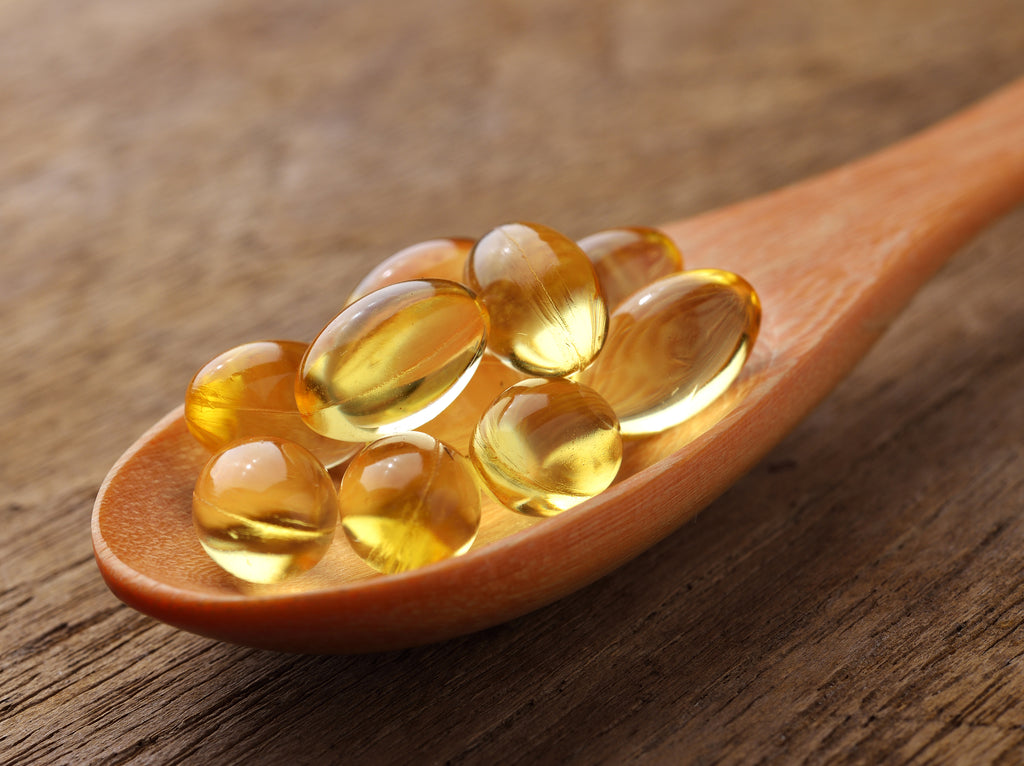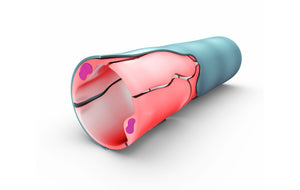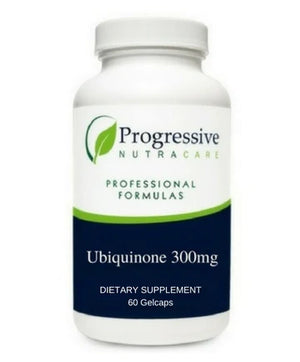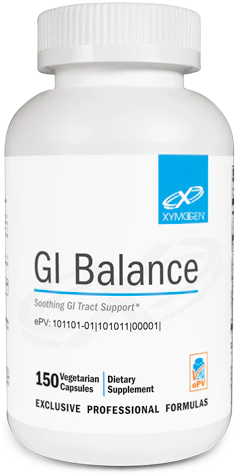Choosing the Right Fish Oil: Why Quality Matters

Fish comes from the sea, right? Fish oil comes from fish, right? And you can get it at any grocery store for a good price, so why should you spend a lot of money?
Turns out, to get the right type of fish oil that's going to work best for your body, there are certain things you need to take into consideration. Quality Matters!
What Is Fish Oil?
Fish oils are the fatty acids derived from the tissues of oily fish. They contain a high amount of healthy omega-3 fatty acids, which are healthy for our hearts.
Most oily fish come from the ocean, derived from fish such as salmon, herring, tuna, mackerels, anchovies, sardines, and small Crustaceans known as krill. You can eat these fish regularly, or choose a supplement to get the health benefits (see below).
Most fish oils contain the omega-3 fatty acids docosahexaenoic acid (DHA) and eicosapentaenoic acid (EPA). Other natural vitamins found in fish oil include trace amounts of vitamin A, vitamin E, and sometimes vitamin D3.
Omega-3 fatty acids help many different things, including:
- Lower Cholesterol Levels
- Lower Blood Pressure
- Prevent Plaque From Forming
- Reduce Heart Arrhythmias
- Reduce Mental Disorders, such as Schizophrenia
- Improve Depression
- Reduce Hyperactivity And ADHD
- Slow Mental Decline
- May Help Weight Loss
- Reduce Is Macular Degeneration
- Reduce Inflammation
- Improve Skin Quality
- Helps Reduce Non-Alcoholic Fatty Liver Disease
- Reduce Asthma Symptoms
- Improve Bone Health
Generally, the WHO recommends taking 200 to 500 mg of a combination of EPA and DHA per day. They also recommend choosing a supplement that provides at least 300 mg of EPA and DHA per serving. And, you want to be careful, because certain supplements may provide a thousand milligrams of fish oil, but only 30% of that might be the EPA & DHA combination.
Take care of purity, as well. You want to choose a supplement tested by a third-party agency or contains the seal of purity from the Global Health Organization for EPA and DHA Omega-3s. Some supplements may also include the US Pharmacopeia seal, which checks standards and contents.
Types of Fats In Fish Oil
So, let's take a little bit closer look at some of these fatty acids.
EPA
Some scientists think EPA is the better fatty acid. It's the primary mediator to help reduce cellular inflammation. It inhibits certain enzymes that produce arachidonic acid, which encourages inflammation through the production of prostaglandins, thromboxanes, and leukotrienes. This is especially prevalent in the brain, where inflammation can lead to altered states often found in dementia.
EPA also mimics corticosteroid action, giving you the benefits of pain relief without side effects.
DHA
Just because EPA is considered more important, doesn't mean that the DHA is any less critical. DHA helps produce the precursors to many of the other eicosanoids that help prevent inflammation.
DHA also helps increase the membrane fluidity of the synaptic vesicles in the brain. This fluidity allows the transmission of signals across nerves to be faster and more efficient.
When it comes to cancer, DHA breaks up some of the membranes cancer need to survive. It make them more susceptible to your immune system.
Not ALA
You will never find alpha-linolenic acid in your fish oil. Why? Because it's only in plants. While ALA is a healthy omega-3 fatty acid and shown to help reduce the risk of heart disease and prostate cancer, it is not found in fish.
Fresh Fish Oil Counts
Everyone knows when a fish gets old, it gets stinky and slimy. Most of this comes from the fats within the fish going rancid.
Unfortunately, if you choose cheaper supplements, much of the fish oil you get may be contaminated with rancid oils.
Many people have reactions to fish oil because they choose a supplement that is already rancid. The truth is, fresh fish oil or properly preserved fish oil do not have a smell or taste.
One of the reasons for this quick spoilage is that omega-3 fatty acids are polyunsaturated. That means that many of the bonds are double bonds, highly susceptible to oxidation that changes the chemical structure. The susceptibility is what makes it so useful within our body.
When the fish oil begins to oxidize, it forms lipid peroxides, harmful aldehydes, and ketones. These additional by-products are what gives fish oil, and fish in general, the unpleasant fishy smell.
The problem with fish oil is that once a fish is out of the water and dies, the oxidation process begins. And unfortunately, there is no way to remove the oxidation.
One of the reasons high quality supplements cost so much is that the fish are processed almost immediately. The oils are extracted quickly and stabilized to prevent as much oxidation as possible. Cheaper supplements have fish that have been around longer, further oxidized, and lower quality.
But there's a further danger. Consuming rancid fish oil supplements can increase your levels of bad cholesterol, inflammation, and atherosclerosis. The very reason many people take fish oil supplements could be causing the problem.
Yes, you do pay more for supplements that have lower oxidation levels, but your health and well-being will improve faster using quality supplements.
Benefits of Buying From A Trusted Distributor
We highly recommend buying a better quality supplement from a trusted dealer. But, how do you know what a trusted dealer is?
One of the first things to look for on your supplement is the quality seals. You may see the US Pharmacopoeia, third-party testing, or the Global Health Organization for EPA and DHA testing seal.
Most manufacturers will also openly display the Certificate of Analysis for their particular product. Each batch should be tested for the amount of EPA and DHA in the supplement, along with potential contaminants of arsenic, lead, and cyanide. Many of the manufacturers will print other vitamin analysis, including vitamin A, vitamin e, and other trace nutrients. If you can’t find the Certificate of Analysis (CoA) easily, request it from the manufacturer.
Some of the supplements might have information on the type of fish, location of capture, and processing. However, some obtain fish for multiple different sources and may not openly offer this information.
They should, nonetheless, have a sustainability program in place. Some fish in the world are over-harvested and threatened. There's also concern about how some commercial fishing operations affect other wildlife such as turtles, dolphins, and whales.
Each bottle you purchase should have a manufacture date. You want this day to be recent, as most supplements are considered unusable after two years. A short time between manufacture and purchase means the products will not have lingered in the warehouse where they may experience cold weather or damaging heat.
Finally, take care of how you store your supplements in your own house. Many people keep their supplements in a bathroom or the kitchen. These rooms often experience warm, humid conditions and fluctuating temperatures that reduce the shelf life of your supplements. Ideally, your supplements should be in a stable, cool location. Most of the time, the refrigerator is too cold for your supplements, but a cool closet is perfect.
Wrapping up
When you choose a fish oil supplement, there are few things to look for. Qualities for a good fish oil supplement include:
- A quality seal of the US Pharmacopeia, third party testing, or the Global Health Organization for EPA and DHA testing
- Open access to the Certificate of Analysis
- Sustainable fishing practices
- Clear dosing instructions
- Clear DHA & EPA contents
- Clear ingredients
- Dates of manufacture
- Nutracare Team







Comments 1
Meta
At 59 years old I have been diagnosed with osteoprosis, osteoarthritis, and bursitis. My fingers and thumb hurt everyday. I have lower back and hip pain. I am very tired of taking NSAIDS. What would you recommend?